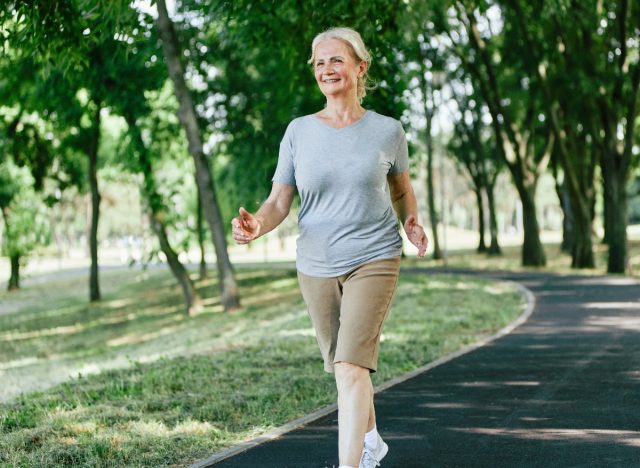Following 'Life's Essential 8' Habits Can Slow Aging by 6 Years, New Data Shows

Remaining fit and youthful for as long as possible is a goal many of us strive to achieve. Did you know that by implementing specific healthy habits into your routine—and being consistent with them—you could add even more years to your life? As a matter of fact, by following "Life's Essential 8" habits, you'll be cruising down the right road toward longevity. According to new data, Life's Essential 8 can slow down biological aging by six whole years. If you're curious about these heart-healthy habits, read on to learn more. And when you're finished, be sure to check out People Swear by the 'Scandinavian Sleep Method' for Better Sleep: 'It's Absolutely Amazing!'
New research reveals that Life's Essential 8 can slow down aging.

Being in good cardiovascular health could result in slower biological aging. This in turn can decrease your risk of cardiovascular disease and other health issues common to aging, according to new research presented at the American Heart Association's Scientific Sessions 2023. Scientists looked at the link between brain and heart health, as measured by the American Heart Association's Life's Essential 8 checklist, in addition to the biological aging process, which was measured by phenotypic age. Their findings will have you reevaluating your daily routine!
RELATED: 5 Best Morning Workouts To Speed Up Weight Loss
If you aren't already in the know, Life's Essential 8 consists of key measures that boost and preserve heart health, as defined by the American Heart Association. Making sure your heart stays strong and healthy helps decrease your chances of suffering from stroke, heart disease, and other major health concerns. Life's Essential 8 is broken down into two categories: health behaviors and health factors. The health behaviors include eating better, being more active, getting healthy sleep, and quitting tobacco. The health factors consist of controlling cholesterol and managing your blood sugar, blood pressure, and weight.
The researchers determined the phenotypic age and phenotypic age acceleration for over 6,500 adults who were part of the 2015-2018 National Health and Nutrition Examination Survey (NHANES). They found that individuals with "high cardiovascular health" experienced a "negative phenotypic age acceleration." For instance, the average age of the participants with high cardiovascular health was 41, however, 36 was their average biological age. In addition, the highest Life's Essential 8 score was linked to a biological age that's an average of six years younger than the person's real age.
"We found that higher cardiovascular health is associated with decelerated biological aging, as measured by phenotypic age. We also found a dose-dependent association—as heart health goes up, biological aging goes down. Phenotypic age is a practical tool to assess our body's biological aging process and a strong predictor of future risk of disease and death," explained Nour Makarem, Ph.D., the senior author of the study and an assistant professor of epidemiology at the Mailman School of Public Health at Columbia University Irving Medical Center in New York City. "Greater adherence to all Life's Essential 8 metrics and improving your cardiovascular health can slow down your body's aging process and have a lot of benefits down the line."
A lower biological age is not only correlated to a reduced risk of chronic disease like heart disease; it's also linked to living longer and having a decreased chance of mortality.









